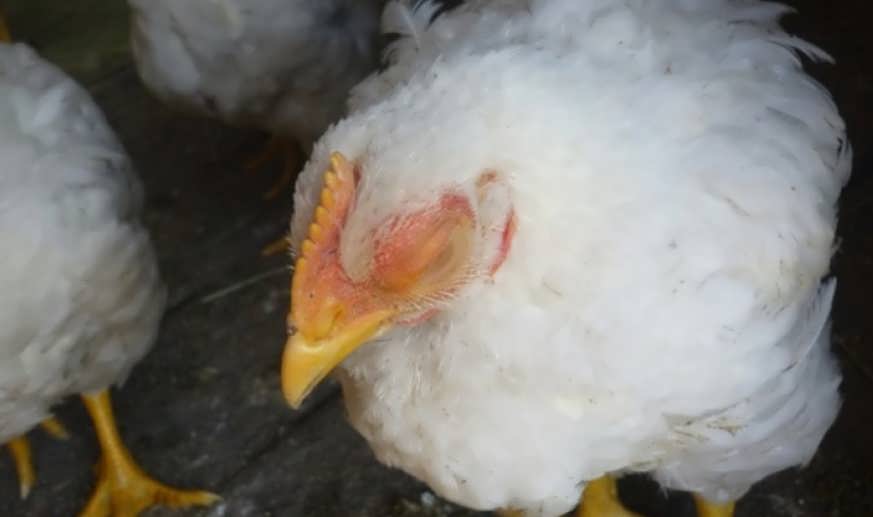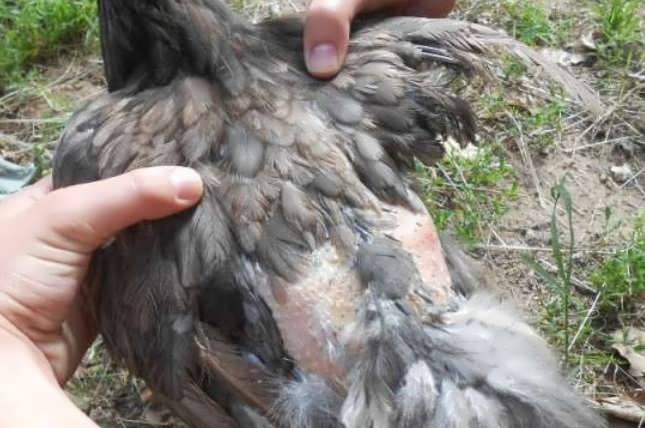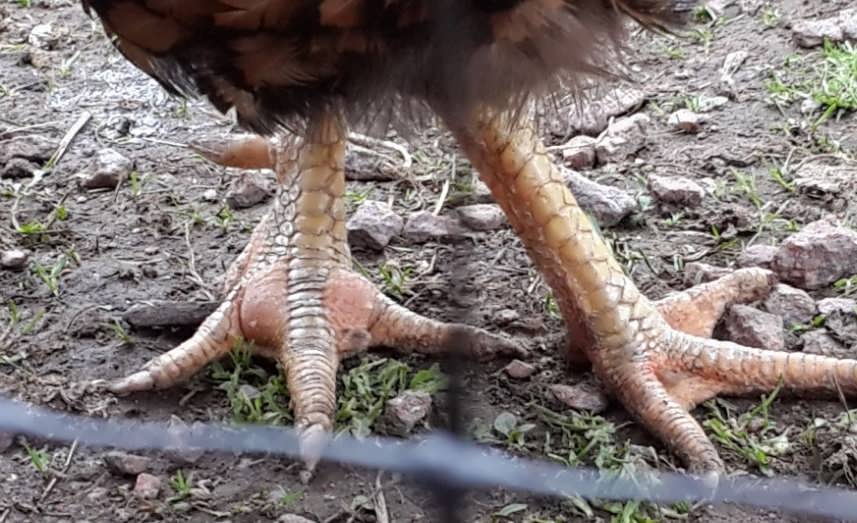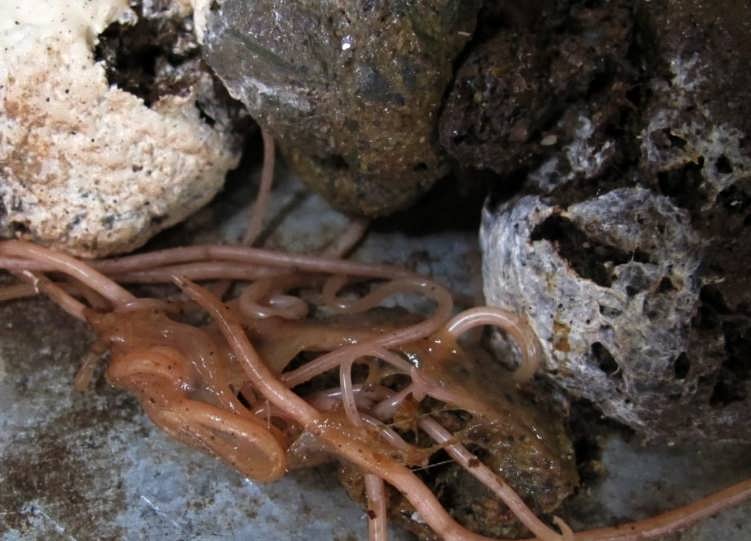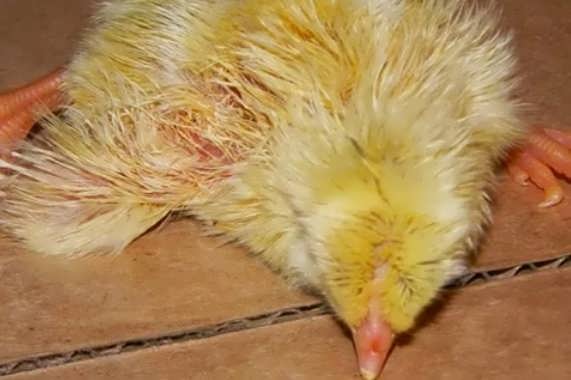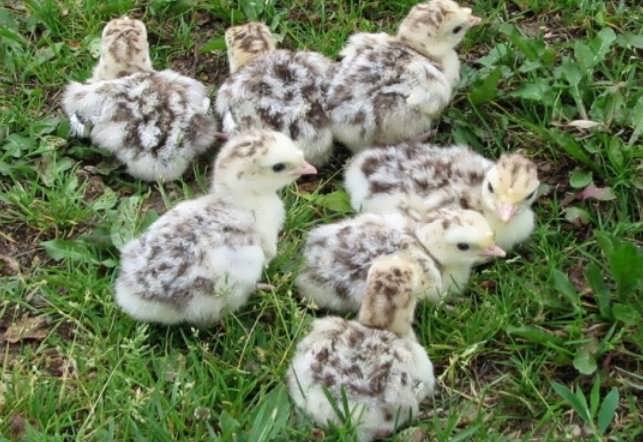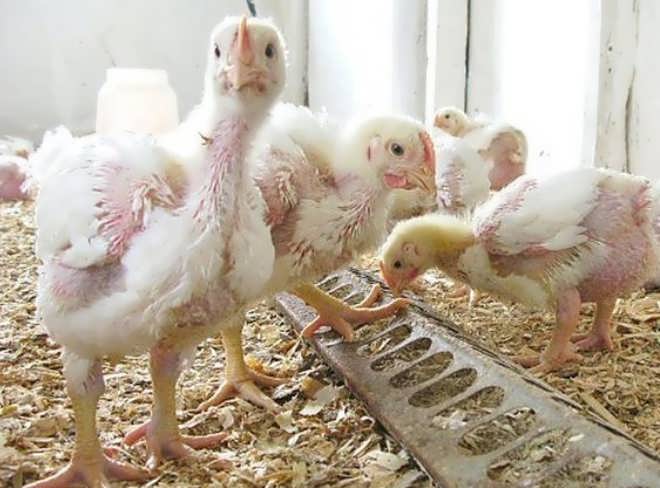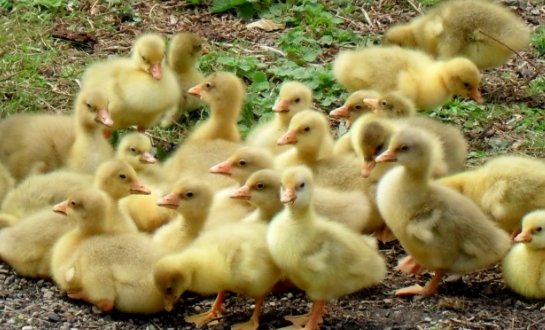The young of any bird requires increased attention, but turkey poults are especially tender. Often it is this moment that repels poultry farmers from growing them from a daily age.
Having understood the causes and treatment, as well as methods of prevention, you can not be afraid to breed and grow turkeys.
What precedes pathology?
The poultry farmer noticed that the turkeys fell to their feet. However, this did not happen suddenly. Very often, the symptoms preceding the disease remain unnoticed.
The basic rule in raising poultry is observation. Every morning you need to start with an inspection and carefully monitor:
- flock mobility;
- appetite or lack thereof (even partial should be alarming);
- increased thirst (if you can not track the amount drunk, observe the number of turkeys near the drinkers);
- the state of the litter (consistency, color, quantity);
- the quality of the plumage (dullness, disheveledness, frizziness);
- condition of the limbs, problems with the legs (heavy, slow gait, sitting up, swelling of the joints, stumbling, falling and helping with wings when standing up, legs turn out);
- lacrimation, discharge from the nasal openings.
Even one of these symptoms should alert. If diseases of the legs of turkeys are noticed, then the disease has already been occurring for at least 10-12 days, taking into account the incubation period.
Why do turkeys fall on their feet
There can be several reasons for the pathology. If the poults fall to their feet, and other symptoms are erased, you need to watch them for a while, but begin to take action immediately.
If the young stock is from 3 to 30 days old, then the disease can quickly kill up to 90% of the livestock. Older, turkey poults 3 months of age, tolerate the disease more easily, and a complex of signs may not be observed. Adult livestock is only a carrier of the pathogen. That is why contact between livestock of different age groups should be limited. By the way, the process of incubation of turkey eggs is described in detail here
How to help the bird?
In laboratory studies, a diagnosis will be established and the microflora will be subtitrated to the most sensitive antibiotics, but this will occur within 5-8 days. What to do in this situation, how not to allow the process to develop further? It is impossible to delay and drastic measures must be taken.
Choosing what to treat, you need to give preference to highly effective drugs. To suppress the action of pathogenic microflora, complex agents of the latest generation from the group of fluoroquinolones are applicable:
- Tricolin. The medicine in its composition has two antibiotics enrofloxacin and collistin. Insuring each other, they enhance the action, and quickly contribute to the growth and reproduction of the pathogen.
To prepare a medicinal solution, 1 ml of the product is dissolved in a liter of pure water. In the morning, the drinkers are washed, the medicine is poured, and the turkeys drink it during the day instead of water. Drinking is carried out 5-6 days in a row.
- Enrofloxacin. By the same principle, this antibiotic is diluted.
Diluted drugs can be stored for a day at a temperature of 5 to 15 ᵒC.
For treatment, you can also use analogues: "Colitil", "Danoxan-50", "Flotsin", "Tilmikon". Breeding is carried out according to the instructions.
How to warn?
Particular care should be taken to keep turkey poults if there is another bird of different ages nearby. It should also be alert if similar symptoms were already observed last year.
If the disease “pumps” the livestock from year to year (this is called stationarity), then antibiotics should be fed with a preventive measure. You can do it like this:
- first watering at the age of 3-8 days (6 days in a row);
- the second at the age of 55-61 days (6 days in a row).
In this case, the concentration of drugs does not change.
If the bird population is large, then it is more expedient to vaccinate. You can give preference to a sorbed vaccine or "Avivak-pastovak". Re-feeding is done after 180 days. If the livestock has already been captured by the infection, vaccination is not carried out, but fed with antibiotics.
If it so happened that the turkey poults fell ill and did not stand up, this is not a reason to refuse to breed poultry. It is necessary to take timely measures, to carry out treatment of livestock, and further preventive measures.

